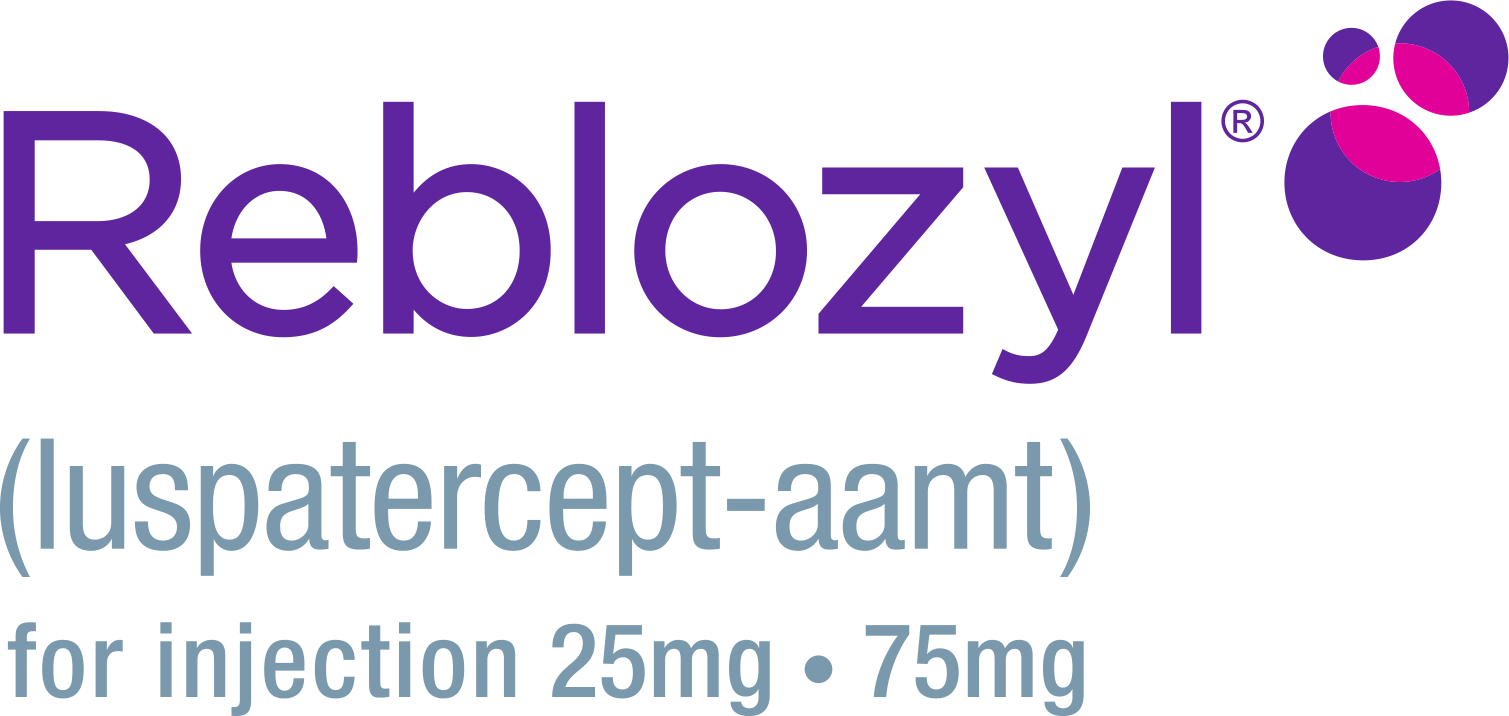Ask your doctor if REBLOZYL is right for you.
As part of managing your MDS-related anemia, it’s important that you take an active role with your healthcare team in choosing a medicine that is right for you.
If you need help managing your MDS-related anemia and want to reduce, or eliminate, RBC transfusion burden , REBLOZYL might be an option for you. When your healthcare team is considering prescribing REBLOZYL, they will keep in mind many factors, such as:
, REBLOZYL might be an option for you. When your healthcare team is considering prescribing REBLOZYL, they will keep in mind many factors, such as:
- Your current and past medicines
- How often you have RBC transfusions (sometimes called a transfusion burden)
- Your health history and other health conditions such as high blood pressure or previous blood clots, as these have been seen with REBLOZYL

 ) without previous erythropoiesis stimulating agent
) without previous erythropoiesis stimulating agent use (ESA-naïve) in adult patients with very low- to intermediate-risk myelodysplastic syndromes (MDS) who may require regular red blood cell (RBC) transfusions
use (ESA-naïve) in adult patients with very low- to intermediate-risk myelodysplastic syndromes (MDS) who may require regular red blood cell (RBC) transfusions .
.









